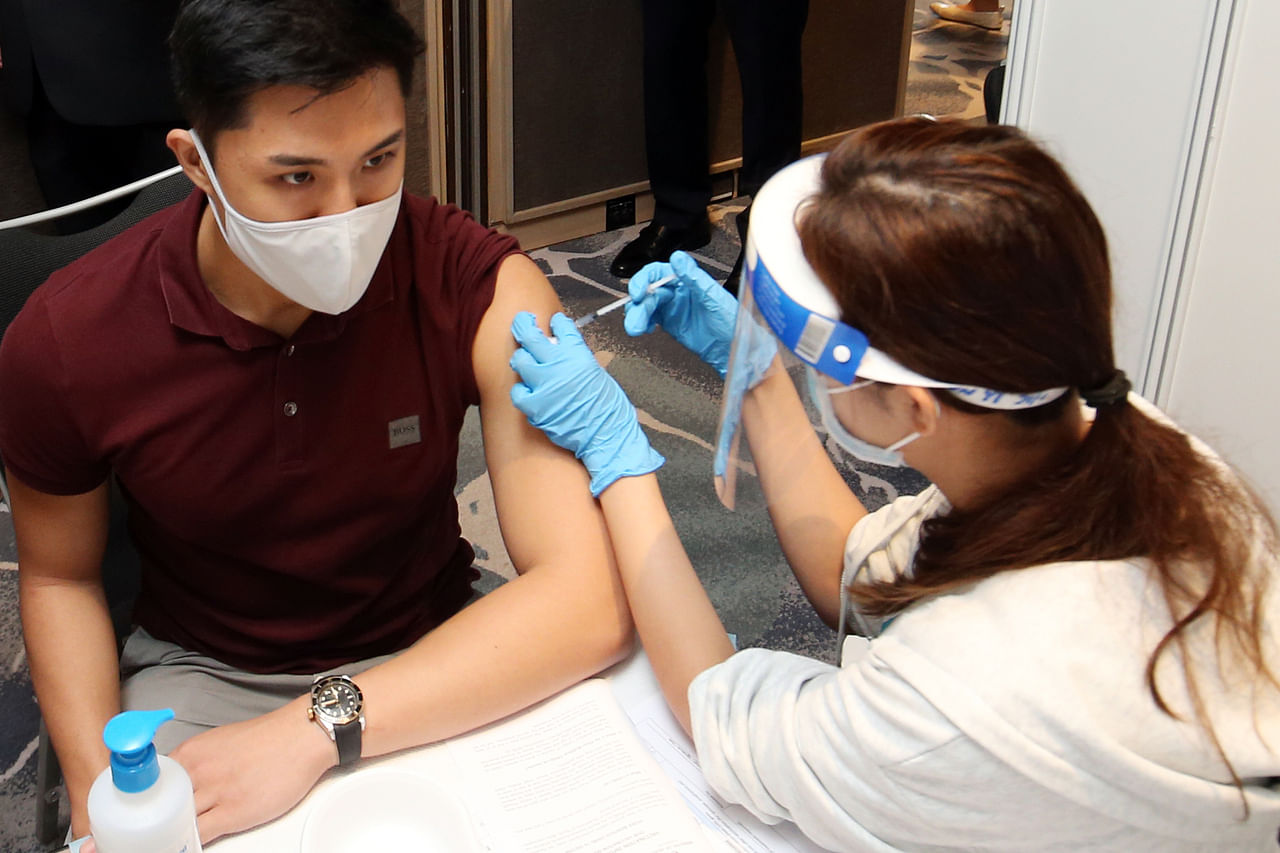Getting a mild infection after Covid-19 vaccination gives best protection against future variants: Expert
Sign up now: Get ST's newsletters delivered to your inbox

Unvaccinated people who get infected do not get the same level of protection as someone who has been vaccinated and infected.
PHOTO: LIANHE ZAOBAO
Follow topic:
SINGAPORE - Getting infected but not sick is the best thing that could happen to someone who has been vaccinated, as this could protect him against any coronavirus variants that might emerge in the future, said Professor Ooi Eng Eong of the Duke-NUS Medical School.
"We would be a lot more resilient if we have a vaccination and an asymptomatic infection," he said during The Straits Times panel discussion on Endemic Covid-19: When and How?
Current vaccines teach the body to recognise the spike proteins on the surface of the virus, but that could change as the virus mutates.
Getting an infection, on the other hand, teaches the body to recognise all parts of the virus, including the core that cannot change, and is thus effective against any mutation, he explained.
He agreed with Professor Leo Yee Sin, executive director of the National Centre for Infectious Diseases, that the higher the antibody level, the better the protection.
However, Prof Ooi pointed out that antibodies do not remain high permanently.
These antibodies are generated following vaccination.
"The immune system does not sustain antibodies at a high level when it doesn't need it," he said, but the memory of how to make those antibodies remains.
"When you see the virus again, it will recall this memory and it will mount an immune response. But that memory recall takes a few days. And so it becomes a race between the immune system and Delta."
So far, data shows that more people infected by the Delta variant get sick compared with earlier variants of the virus.
Prof Ooi said this is because of the shorter incubation period - the point from infection to disease - of three days for Delta against five days for the original strain. The immune system, however, takes about four or five days to mount a response.
This is why symptoms may appear before the body is able to properly fight the infection. However, once the body's defence mechanism kicks in, it is often able to prevent serious illness.
"So you may start falling sick. But once the immune system catches up, it stops the disease progression, and that's why the severe end is still very good. But where we're losing is this early end. Probably we will need a high level of antibodies to prevent symptomatic illness to begin with."
Antibodies prevent the virus from entering our cells to replicate. However, once the virus has entered the cells, the antibodies are powerless.
However, the body also has defensive T-cells that can be trained to kill infected cells - and the millions of viruses replicating within those cells. The current vaccines train the T-cells to recognise the spike proteins, and if these change significantly as the virus mutates, they become less effective in fighting Covid-19 infection.
A mild infection, on the other hand, would teach the T-cells to recognise the entire virus, including the unchangeable core.
Unvaccinated people who get infected do not get the same level of protection as someone who has been vaccinated and infected. Prof Ooi said this is because infection itself is able to turn off some of the body's signals. A vaccine offsets this.

